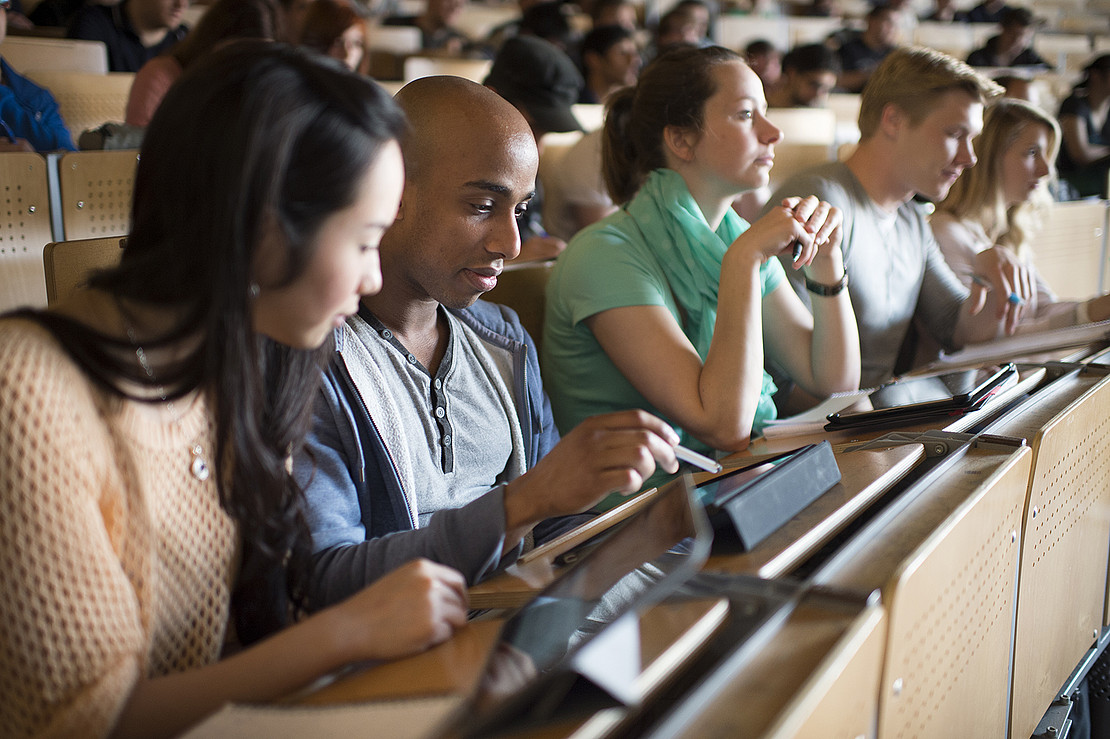This page contains automatically translated content.
University of Kassel starts winter semester with more than 25,000 students
 Image: Studio Blafield.
Image: Studio Blafield."You are starting a new phase of your life in an exciting city and at a university that offers you excellent conditions for your studies," Finkeldey said before the start of the lecture period next Monday. "We are a young university where things are on the move in the best sense." Among the advantages of Kassel as a place to study, in addition to an excellent cultural offering, to which students have low-cost access via the Kulturticket, are the lower rents compared to many other cities.
According to current figures, 25,246 young people are enrolled at the university. The number of newly admitted students (first-time and new enrollments) is 4,657, continuing the trend of moderately declining enrollment that was already evident last year. There are 5,492 of the now registered students in their first semester (2017: 6,015). All student numbers now available are preliminary. Exact data is expected in mid-November.
3,240 of all students are international students, representing 12.8 percent. This means that the high proportion of last year has been reached again. Finkeldey described this as extremely gratifying: "We see ourselves as a university firmly anchored in the region. But we also see ourselves as part of a global community of academics. Internationality is a given for us and also strengthens the region."
The most popular restricted-admission degree programs at the University of Kassel were Elementary School Teaching with 1,588 applications for 210 first-semester places, Bachelor of Social Work (1,567 applications for 340 places) and Bachelor of Psychology (1,195 applications for 80 places). New compared to the previous winter semester is the joint Bachelor's program in Health Education with Fulda University of Applied Sciences.
Just in time for the start of the new academic year, the university is offering its students a range of new digital services. These include a tool that allows students to use their smartphones to find free study and work spaces in the library, among other places. In addition, the eCampus is being expanded, where, for example, documents such as study certificates can now be accessed digitally. A dedicated app, which is already available for Android devices and will soon be available for Apple devices as well, provides information about news from the university.
"We want to constantly improve the study conditions at our university," the president explained. "This particularly includes the question of what factors prevent students from successfully completing their studies. We want to understand that even better and offer as many students as possible the most tailored support possible." Digitization is also to be driven forward. However, Finkeldey said he is not interested in setting new records for the number of students. If the times of peak student numbers were now coming to an end, this would also open up scope for intensifying student support.
Finkeldey appealed to politicians to ensure adequate funding for universities in Hesse: "We need an increase of at least 5 percent annually in Hesse's university budget." Additional funds must also be made available for university construction and digitization, said the president, referring to the upcoming formation of a government. At the same time, he welcomed the state government's recent confirmation to finance the new physics and nanostructure sciences building at the Holländischer Platz campus and to provide 120 million euros for this purpose.